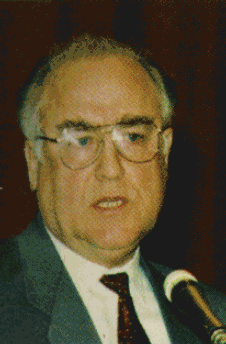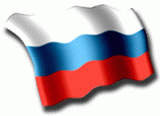


| 
| 
| 
| 
| 
| Forty three parties want power. But we have the power. Viktor Chernomyrdin, 1995 |
From 1978 to 1982 Chernomyrdin was a staff member of the Central Commitee of the Communist Party. Since 1982, a Deputy Minister of Gas Industry of the USSR and, simultaneously, the head of the All-Union Association on Natural Gas Production in Tyumen region. Later, Chernomyrdin became Minister of Gas Industry of the USSR. From 1985 to 1989, he headed the Ministry of Oil and Gas Industry. Since 1989, he was the CEO of the Gazprom concern. In 1992, President Boris Yeltsin appointed Viktor Chernomyrdin the Prime Minister of the Russian Federation. The seventh Congress of People's Deputies of Russia confirmed this appointment in December, 1992.
In June of 1994, Viktor Chernomyrdin underwent kidney surgery in the Urology Clinic of Johannes Gutenberg University in Mainz, Germany, to get stones removed.
On June 14, 1995, some 100 Chechen terrorists under the command of Shamil Basayev stormed Russian town of Budennovsk, 70 km (45 miles) from Chechnya. They killed scores of people and escaped to a hospital with hundreds of hostages. Commandos failed to capture the attackers and free the hostages. On June 18, 1995, Viktor Chernomyrdin negotiated with the terrorists by telephone. The next day, Chechen gunmen left Budennovsk in a convoy of buses with remaining hostages, who were eventually freed. The terrorists were allowed back to Chechnya.
The failure of the initial operation ordered by President Yeltsin and supervised by Minister of Defense Grachev, Minister of Security Stepashin, and Minister of the Interior Yerin resulted in Stepashin and Yerin being fired. Pavel Grachev retained his position as the Minister of Defense despite the fact that Viktor Chernomyrdin voted for his sacking at a cabinet meeting.
Novoe vremya (no. 48) argues that Prime Minister Viktor Chernomyrdin was the main force behind the November, 1995, dismissal for "gross financial violations" of Col. Gen. Vasily Vorobev, head of the Defense Ministry's budget and finance department. The magazine asserts that Vorobev was involved in the misappropriation of large sums destined for the army and that this led to regular delays in the payment of servicemen's salaries. When Chernomyrdin learned the details, he reportedly went to President Yeltsin, who fired Vorobev. Novoe vremya speculated that Chernomyrdin's intervention was linked to his promise on 15 November to pay the government's debts to the military. Vorobev's dismissal, the paper contends, would allow him to attribute the shortages not to government inefficiency, but to the army, while his attempts to remove the "miltary mafia" would improve his prestige in the military.
In May 1995, Chernomyrdin founded Our Home Is Russia, a centrist political movement. Here are some quotes from the election programme of Our Home Is Russia.
"We are opposed to support for any ideas pursuing a revolutionary, forcible change in the current system."
"We are for continuity in the policy of democratic transformations in Russia."
"We aspire to be a truly popular movement of the broad centre, expressing people's main interests."
"We are for honesty, openness, glasnost and democracy."
The movement attracted sympathies of many prominent members of the ruling elite of Russia and got nicknamed "the party of power". Our Home Is Russia has tens of thousands activists. The list of its leaders is a gallery of big shots of federal and regional levels. Sponsors of Our Home Is Russia include PromRadTechBank, AvtoVAZ, and Gazprom.
Our Home Is Russia won 10.13% of the party list vote and 12.22% of the Duma seats in December, 1995, to produce the second largest Duma faction. Viktor Chernomyrdin said he is "satisfied" with the election results, characterizing his bloc's worse than expected showing as neither a success nor a failure. "The Communist Party has existed for 97 years and won only 20%. Our Home Is Russia has worked only four months and we were able to win 10%," he told Russian TV on 18 December.
President Clinton expressed his support of Chernomyrdin as potential successor to Yeltsin.
However, Chernomyrdin himself has struck a pessimistic note in his public appearances. The decision in 1993 to elect the State Duma for only two years was a "most serious error," he told Argumenty i fakty, adding that "one can work with this Duma. The deputies have begun to understand what is what." Speaking on Radio Rossii on 12 December, 1995, Chernomyrdin claimed to have "faith in the reason of the calm, normal person," but his appeal to voters was quite defensive. The prime minister promised that the conflict in Chechnya will not be "endless," the army's "difficult situation" will not be "eternal," people will not be left without salaries, and soldiers will not be poorly fed and clothed. Similarly, he admitted that the economic policies "of the last decade" had not always benefited rural areas but pledged to continue agricultural reform without imposing such policies "by force."
On October 5, 1995, Viktor Chernomyrdin announced, "I have never planned, and I am not planning to run for president next year". This announcement took place prior to Yeltsin's second heart attack in 1995, but Chernomyrdin repeated it in December, in his interview given to Argumenty i fakty. The parliamentary leader of Our Home Is Russia, Sergei Beliayev, announced on January 29, 1996, that the bloc, created initially to support Chernomyrdin, would now devote itself to electing Yeltsin. Chernomyrdin called "unacceptable" the formation of groups to support his candidacy for the presidency, saying he knew nothing about them, ITAR-TASS reported on January 31. Groups have appeared in St. Petersburg and Orenburg.
On February 8, 1996, at a meeting of the Council of Our Home is Russia, Chernomyrdin officially announced that he will not run for president in 1996. He expressed his strong support of Yeltsin's candidacy. He emphasized that he will help President Yeltsin in organization of a vigorous electoral campaign. Yeltsin officially announced his candidacy on February 15, in Yekaterinburg.
Chernomyrdin said on March 24 his centrist political bloc would try to create a broad coalition of parties to support President Boris Yeltsin's bid for re-election. Chernomyrdin's pledge confirmed his Our Home is Russia movement would back Yeltsin in the June 16 election. "To sum up why Our Home is Russia is for Yeltsin, I can say only one thing -- because we are for reforms, for the constitution of Russia, for peace in Chechnya, for a normal life in Russia," Chernomyrdin told Itar-Tass news agency.
 Back to Russian Presidential Elections-96 page.
Back to Russian Presidential Elections-96 page.